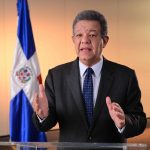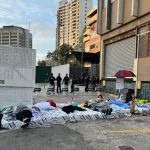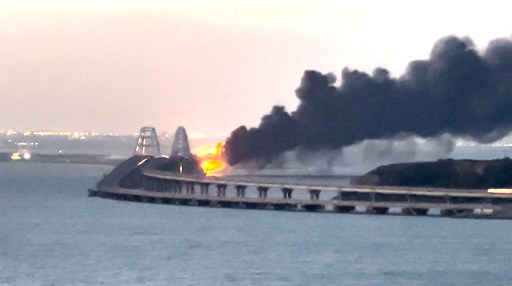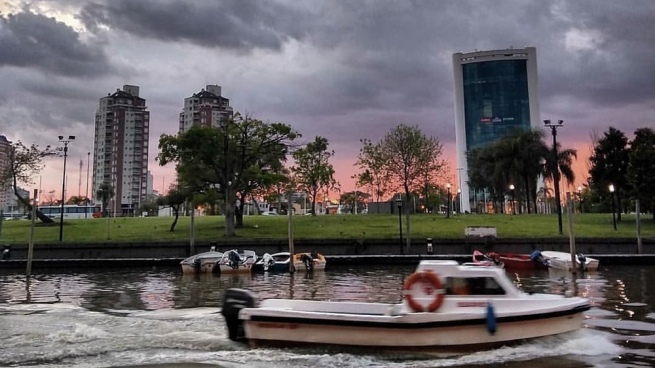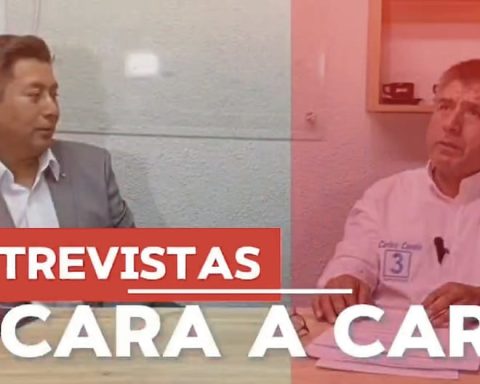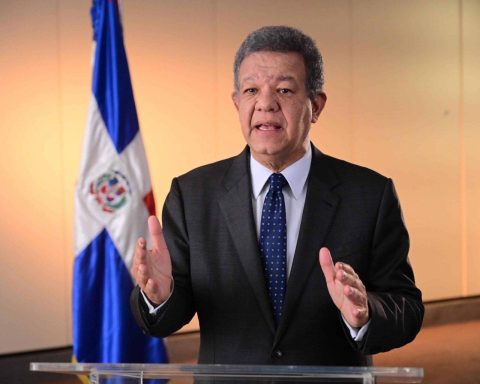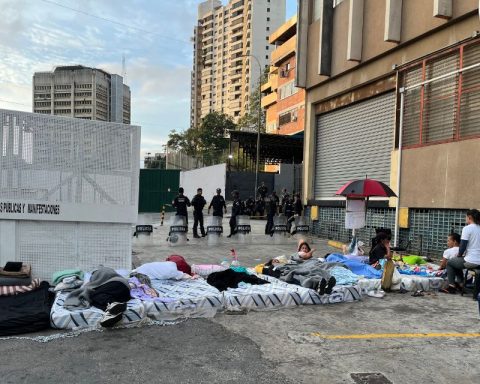At 11 a.m. in Chile next Tuesday, October 11, the new members of the United Nations Human Rights Council will be elected in New York (HRC). 18 candidates for 14 places (in total they are 47), of which are already closed: Africa with 4 seats: Algeria, Morocco, South Africa, Sudan; Western Europe + others that have 2 places ready: Germany, Belgium. And Asia, Eastern Europe, Latin America and the Caribbean remain to be defined.
In the case of Latin America and the Caribbean —which has eight seats, of which two are renewed for the 2023-2025 period— three countries are trying to enter: Chile, Costa Rica and Venezuela, which is seeking re-election. Those elected would join Argentina (which chairs the group), Bolivia, Paraguay, Mexico, Cuba and Honduras in January.
For Chile —which has been a member three times (2009-2011; 2012-2014; 2018-2020)— it is a State decision and a litmus test of the government’s foreign policy. In fact, the official minute reads: “This campaign has involved a broad mobilization of this Foreign Ministry, using its network of embassies and multilateral missions at a global level for an active promotion of this candidacy. Similarly, the involvement of all the high authorities of the country is highlighted, which have worked towards this candidacy in their bilateral meetings with other countries”.
The nomination was promoted by the government of Sebastián Piñera in 2019 and was not only inherited by the administration of President Boric, but also became an important goal within his foreign policy, which has been fully worked on during the almost seven months of mandate.
“The HRC is the forum of the universal system to discuss human rights issues. An important place, which Chile has occupied before, that allows us to raise and put forward the issues that are priorities for the country’s foreign policy and for the Government’s policy, and also to talk with the internal implementation issues that it is carrying out. carried out by the Undersecretary of Human Rights”, explains the ambassador and Director of Human Rights of the Ministry of Foreign Affairs, Tomás Pascual.
The strategy, which was made official by Minister Antonia Urrejola in May states in part: “The human rights perspective cuts across public policies and international relations. Awareness of this reality, as well as the profoundly democratic commitment of the Government of Chile in this regard, has been explicitly manifested by President Gabriel Boric as head of state.
Chile has actively participated in panels, resolutions and mechanisms on a wide spectrum of topics related to human rights, such as the prevention of torture, the right to truth, justice and reparation, the promotion and protection of children’s rights, girls and adolescents, the rights of women, the rights of LGBTIQ people and particularly, their protection against violence and discrimination, as well as the rights of indigenous peoples, among others.”
Since then, all efforts have been focused on this nomination, leaving aside —for example— the candidacy of Claudio Grossman to join the International Court of Justice in The Hague, after the quota left by the Brazilian Antonio Cançado Trindade. An action that still makes noise in diplomatic circles. Then (July 28, 2022) the Foreign Ministry communicated that Grossman already had been re-elected with the first majority (174 votes) for the period 2023-2027 as a member of the International Law Commission (CDI) of the UN in New York and that a campaign for The Hague required time that was not available, in addition it was argued that the post should—according to custom—belong to a Brazilian. This implied that our country committed to a total of 146 Reciprocal Support Agreements, which oblige Chile to support the same number of countries in elections that will take place between now and 2044, inclusive.
In government circles there is moderate optimism about the vote. No one wants to put themselves on the case, or think about not reaching the quota. “That would be a blow, which, together with certain mistakes such as the still lack of appointments in important embassies, the delay in certain trade agreements such as the one with the European Union that is still pending, the impasse with Israel, which although it was overcome, caused concern or the behavior of the ambassador in Spain, to name a few facts, should end with a cycle in the Foreign Ministry. So more things are at stake here than a place in the CDH”, warns a close observer.
The campaign and the China-Bachelet factor
The campaign began to move with the arrival of Paula Narváez as ambassador to the UN, when the government had been in office for 10 days. She was mandated to make it a priority and a significant goal for her first few months on the job. Since then, according to a source, a significant effort has been made in negotiations, for example exchanging votes with countries that have interests in other candidates. In New York they take accounts that with about 135 basic votes you can breathe easy.
A couple of “intelligent” signs that the international arena observed and noted with interest are: the ratification of the Escazú Agreement in June and the deposit of the instrument of ratification of the 1998 Protocol of San Salvador before the General Secretariat of the Organization of States Americans / OAS, in July.
Likewise, in July, the Chilean embassy in Brazil organized a working day, headed by the director of multilateral policy, Jorge Tagle, with the 34 ambassadors of the countries that have concurrence in Chile from Brazil. On the occasion, the Chilean candidacy was disseminated in different languages, “highlighting the promotion and protection of human rights, the promotion of peace, democracy, the rule of law and sustainable development as axes of foreign policy.”
But September was the month that marked the greatest deployment of the campaign, with the peak during the United Nations General Assembly attended by President Boric. His speech dedicated coded messages to potential voters, strategically omitting to comment on the human rights situation in a powerful ally: China. Thus the president spoke of Nicaragua, Venezuela, Iran, Russia. Neither did he mention Michelle Bachelet, who is the / the Chilean / or who has held the highest position in human rights and is the most internationally known Chilean character in that field. She could have made a link, a wink, but again the China factor intervened. The office of the former High Commissioner for Human Rights released, at the end of August, a strong report on the humanitarian situation in that country. Silence also reigned over the reactions published by the Chinese ambassador in Santiago, Niu Qinbao.
Diplomatic sources explain that several votes depended on that “silence”, which are the ones that can move China for or against our country.
In his capacity as ambassador to the UN, former Foreign Minister Heraldo Muñoz was one of the promoters of the creation of the Human Rights Council, to replace the Commission that was losing weight and had become politicized. “The Council began to have new powers and requirements, including the Universal Periodic Review for accountability by all member states of the organization, as well as the Complaints Method available to individuals and organizations. However, the Council also suffers from politicization and the presence, as members, of countries that systematically violate human rights”, he affirms.
After the Assembly, Chancellor Antonia Urrejola stayed 10 days in New York with the mission of continuing the promotion together with Ambassador Narváez. There she met with more than 20 representatives of nations, among which are: Cuba, Uruguay, Turkey, Norway, Romania, Andorra, Angola, Tunisia, Oman, among other countries. She did the same, but in Europe, the undersecretary of RREE, Ximena Fuentes.
The look of the competition
For the professor of Public International Law at the Law School of the University of Costa Rica (UCR), Nicolás Boeglin, Chile’s candidacy is reinforced by “environmental moves”. The foreign reading is: Chile’s diplomacy decisively deepens its firm international commitment to human rights and the environment.
“The Escazú Agreement of 2018 and the Protocol of San Salvador of 1998, are two important ratifications that Chile has made. In addition, after the sad parenthesis for human rights and the environment that the administration of President Sebastián Piñera meant between 2018 and 2022, the new Chilean authorities have strong sympathy abroad. Presenting yourself to the world with recent ratifications of international human rights instruments is always a point in favor of a candidacy for the HRC. Of the three candidates for Latin America to fill these two vacancies, Chile is the one in the best position and it will be necessary to see if this is reflected in the number of votes obtained”, he explains.
The academic points out the disadvantages of Costa Rica compared to its competitors. “The officialization of the Costa Rican candidacy was made during the speech given by the foreign minister at the United Nations General Assembly last September 2022. It can be considered that it is indeed a somewhat late announcement if we compare it, for example, with that of Chile. who made his candidacy official on May 5, 2022. Now, not making a candidacy official does not mean that the necessary support has not been negotiated long before: we will see in this election whether the strategy followed by Costa Rica bears fruit or not. In addition, the fact that Costa Rica has not ratified the Escazú Agreement may play against its candidacy, calling into question its international commitment to human rights and the environment”.
Venezuela, for its part, has its own story, since it is going for re-election. In 2019, Costa Rica sought to snatch the position from him and failed. On this occasion, the struggle is repeated.
“It will be necessary to see if the Venezuelan diplomacy can maintain its support or not, or if Costa Rica this time convinces those who did not support it then,” says Boeglin.
As a matter of interest, in its official 2019 candidacy note verbale, Costa Rica made reference to the Escazú Agreement. In his current note he omitted any reference to the Agreement.
A few days before the election, the Director of Human Rights of the Foreign Ministry, Jorge Tagle adds that “the HRC is a space that Chile can use to promote its foreign policy agenda. It is a forum that, despite the political discussions that have taken place regarding the situation in certain countries, continues to be the space to inhabit precisely the areas of concern in Chile and push the agenda towards greater protection of human rights in the world.
Former foreign minister and ambassador Heraldo Muñoz says that obtaining the quota will be a success, but not something unprecedented “because Chile has already joined the Council of 47 members. I do not put myself in the scenario of a defeat, which would be a blow to foreign policy. Costa Rica has good prestige in terms of human rights and good diplomacy. This is not the case of Venezuela, but in the Assembly many States do not vote for the record of the candidate country in terms of human rights, but for reasons beyond their control. It will be a tough competition.”








